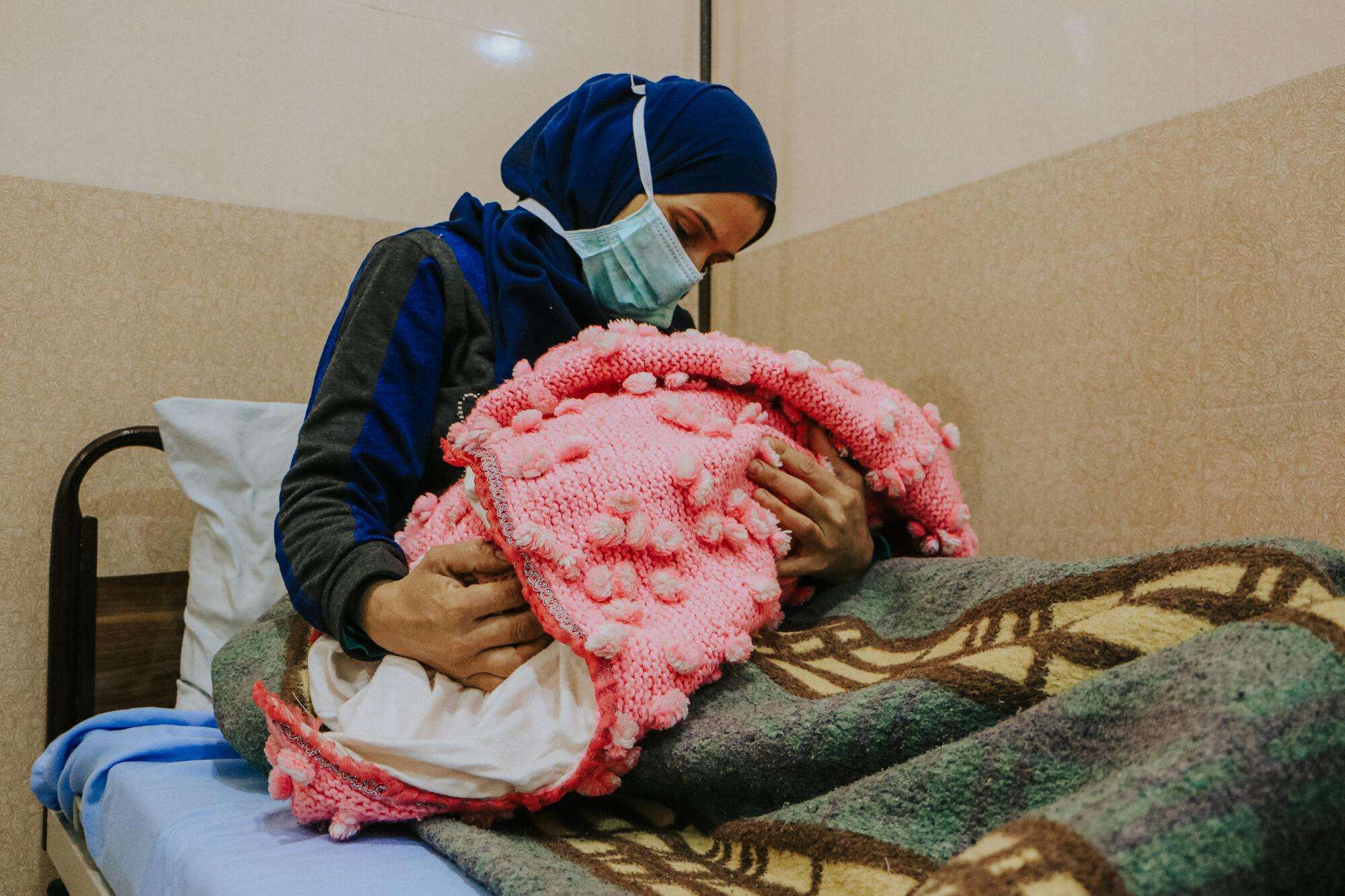Ratiba and her husband arrived by motorcycle to the Doctors Without Borders/Médecins Sans Frontières (MSF) supported hospital in Idlib governorate, northwestern Syria. She was in labor. The couple have three other children, all born in the 11 years since the war began. They are displaced and live in a tent, struggling to make ends meet. Like thousands of other pregnant and lactating women in Syria, Ratiba was diagnosed with malnutrition and suffered from continuous dizziness, hypertension, and fatigue throughout her pregnancy.
Northwestern Syria is home to some four million people, including 2.7 million internally displaced, 80 percent of whom are women or children. Throughout the war in Syria, MSF has witnessed the additional consequences the conflict has had on women. Many live in precarious conditions and suffer from food insecurity. Existing challenges—such as gender-based violence—further compound women’s vulnerabilities. “Even the normal stages in a woman’s life, such as menstruation, pregnancy, or breastfeeding, become a complex burden,” said, Teresa Graceffa, MSF medical coordinator in Syria.
Mental health consequences
Access to health care is a huge challenge due to insecurity, long distances to reach health facilities, and the cost of services and transportation. "A woman coming from afar recently gave birth near the entrance of an MSF-supported hospital,” said Caroline Masunda, MSF medical referent in Syria. She was waiting for enough money to pay for transportation, as there was no ambulance available. This is concerning as late arrivals for delivery could lead to medical complications for both the mother and the baby."
Eleven years of war have also taken a toll on women’s mental health, and many are struggling with anxiety, depression, or post-traumatic stress disorder. Most women and adolescent girls who receive psychological support in MSF facilities say that their distress is directly or indirectly related to the conflict. “I recently referred a 25-year-old displaced mother of five to a mental health specialist because she presented [with] symptoms of depression,” says Soumaya*, an MSF health promoter “She was so overwhelmed with sadness that she could no longer breastfeed her newborn child.”
MSF has offered sexual and reproductive health (SRH) services to women in northwestern Syria since 2012. This includes prenatal, postnatal, and newborn care; management of deliveries including C-sections; gynecological consultation; family planning; and mental health support. In 2021, our teams assisted over 18,000 deliveries in Aleppo and Idlib governorates and provided more than 200,000 SRH consultations, through co-managed and supported hospitals, health centers and mobile clinics.
Funding shortfalls
As humanitarian needs continue to grow in Northwestern Syria, huge gaps in health care remain: The fragile health system faces structural challenges and funding shortfalls remain a major challenge. In the displacement camps where MSF runs mobile clinics, women regularly express to our teams concerns about the decreased availability of maternal and childcare services. “Every time we head to the nearby hospital, we see fewer doctors and nurses, and most services are often unavailable,” said Fatima*, a mother of seven who recently experienced a miscarriage. “I learnt that the hospital in which my daughter was born is now closed”.
Over the last year, MSF has seen various health facilities and projects downscale their activities or close after losing their funding. In addition, hundreds of medical facilities have been damaged or destroyed due to the conflict. Many medical staff have been killed or have fled the country. Essential medicine and medical supplies are often unavailable. All of this has negatively impacted the access to essential services for women, girls, and newborns.
As a response, MSF stepped up its activities to respond to a 50 percent increase of deliveries in three of the hospitals we co-manage—cesarean sections also tripled in 2021. This increase continued in the first two months of 2022.
The humanitarian response in Northwestern Syria does not match the needs, and there is an urgent need to increase funding for lifesaving activities, including SRH services. “Women in northwestern Syria need long-term quality provision of sexual and reproductive health services to have a chance to lead healthy lives. Now is certainly not the time to let them down,” said Dr Faisal Omar, MSF head of mission for Syria.
*Names have been changed.
In northwest Syria, MSF is currently supporting seven hospitals including a burns unit, 12 primary health care centers and three ambulances for referrals. MSF also supports 11 mobile clinics serving camps for internally displaced people( IDP). MSF is also running water, sanitation and hygiene (WASH) activities in almost 100 IDP camps across the northwest region.

